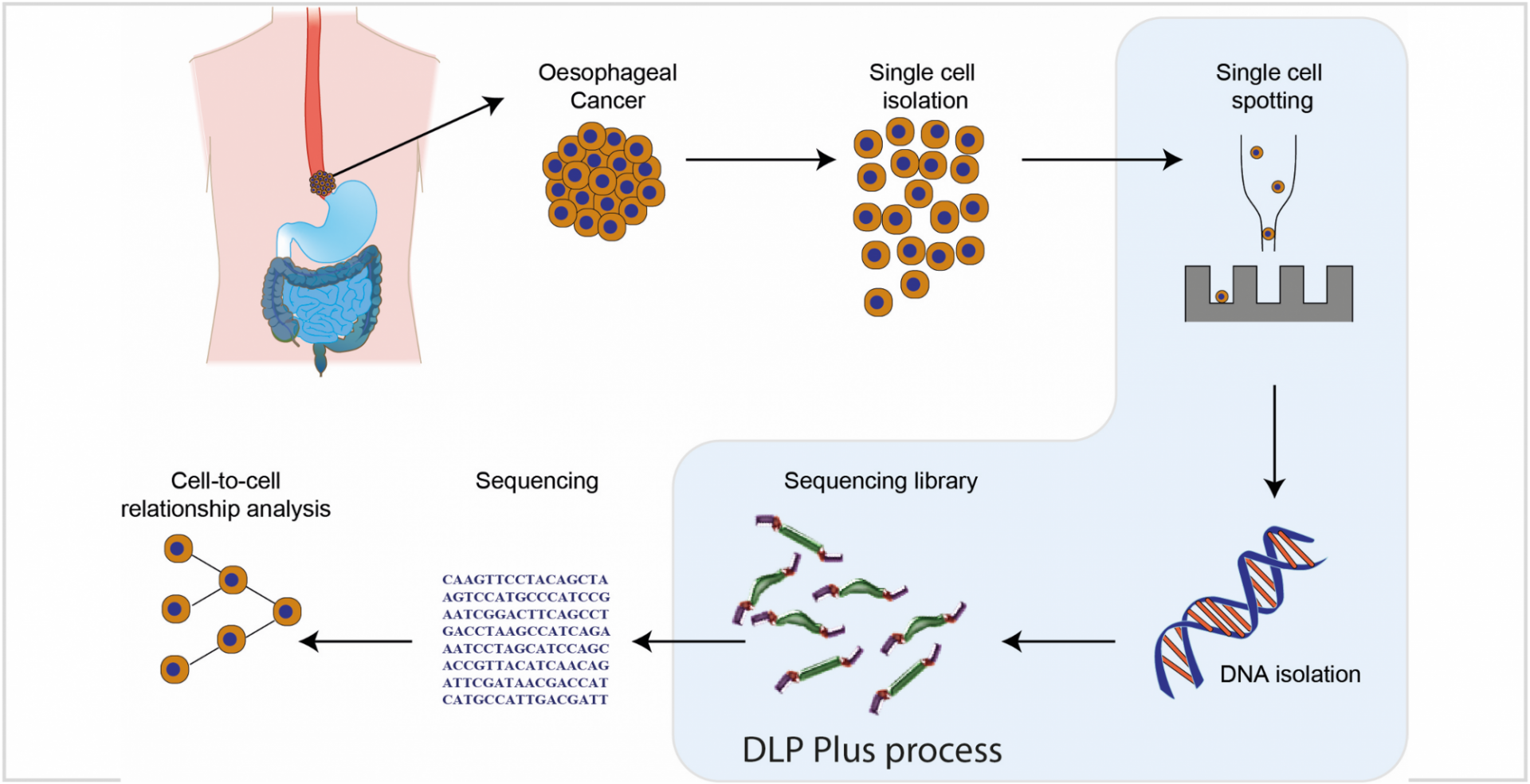Canada UK Foundation Supports the Deployment of Canadian Technology to Cancer Labs

Since 2019, the Canada UK Foundation has been supporting early career researchers through their Canada-UK Foundation Post-Doctoral Fellowship in Entrepreneurship and Innovation. Dr. Karol Nowicki-Osuch was a Canada-UK Fellow in Prof. Rebecca Fitzgerald’s laboratory at the University of Cambridge. In January 2021, he began his independent project as an Associate Research Scientist at the Irving Institute for Cancer Dynamics at Columbia University. The Canada UK Foundation continues to support his independent work, promoting international collaborations. Through his research, Dr. Nowicki-Osuch aims to study human cancer samples in unparalleled detail, and in doing so, widen the use of a new Canadian technology, Direct Library Preparation Plus worldwide. A new avenue in cancer research is the study of individual cancer cells
Over the last 15 years, cancer researchers have made tremendous progress in studying the genetic changes happening during cancer development. Emerging data suggests that tumor resistance to chemotherapy is often driven by the diversity of cells within individual cancer, making the study of individual cells the potential pathway to personalized (individualized) treatment. Until recently however, scientists could only analyze large samples composed of millions of cells. A breakthrough came in 2019 with the development of a technology called Direct Library Preparation (DLP) Plus designed at BC Cancer Research Centre (BCCRC) and the University of British Columbia (Laks et al., Cell 2019, 179(5), 1207-1221, E22). DLP Plus allows for the analysis of thousands of individual cancer cells simultaneously. Scientists are no longer required to look at an average image of millions of cells. Instead, they can investigate the changes of each cell and accurately study cancer as it evolves over time. DLP Plus has also been implemented at Memorial Sloan Kettering Cancer Center, the New York Genome Center, the UK's Francis Crick Institute, and Sweden's Lund University.
Dr. Nowicki-Osuch spearheads the deployment of DLP Plus at the Irving Institute for Cancer Dynamics and the New York Genome Center. The project aims to investigate genetic changes in the early stages of oesophageal cancer development. In addition to the New York team led by Dr. Nowicki-Osuch, the project combines the expertise of a BCCRC team led by Dr. Sam Aparicio and a Cambridge team led by Prof. Rebecca Fitzgerald. “Despite Covid-19, over the last 12 months, we were able to deploy the method and analyze the first samples. The data look very encouraging, and we are looking forward to the main study,” said Dr. Nowicki-Osuch. In the initial deployment and optimization of the method, Dr. Nowicki-Osuch worked closely with Dr. Aparicio’s team at BCCRC. Dr. Nowicki-Osuch and Jecy Wang, research assistant at BCCRC, jointly organized and led two working groups for scientists involved in deploying DLP Plus worldwide. The first one focused on the technology itself and the second on computational pipelines associated with data analysis produced by DLP Plus. The silver lining of the pandemic-induced shift towards remote working greatly benefited the study as everyone is now used to virtual meetings and exchange of ideas. Dr. Nowicki-Osuch explained: “During our working group meetings, we had a very fruitful conversation that allowed for free flow of information that should benefit all groups that are keen on using DLP Plus.” Jecy Wang said: “Providing DLP+ training to the New York Genome Center virtually was a novel approach for us which turned out very well, and we hope that it will simplify its deployment across the world.”.
In the next phase, the team will analyze samples collected in Cambridge by Prof. Fitzgerald’s laboratory. These oesophageal samples form one of the best annotated and comprehensive panels of cancer samples currently available to researchers. These samples further benefit from excellent clinical follow-up of patients who provided the samples. Dr. Nowicki-Osuch is excited about leading the analysis in collaboration with Prof. Fitzgerald's laboratory. Currently, the genetic diversity of cells within oesophageal cancer is not known, and neither is their genetic relationship with the normal tissues of the gastrointestinal tract. DLP Plus will provide an unprecedented insight into the diversity of oesophageal cancer and might explain some of the earliest evolutionary trajectories undertaken by this disease.
